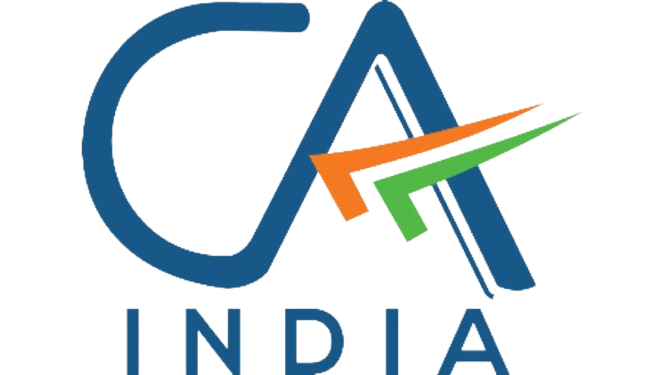It is crucial for taxpayers to accurately report their financial activity to ensure transparency in their finances. The Income Tax Department employs advanced techniques to detect any potential discrepancies between taxpayers' reported income and their actual spending income.
To prevent tax evasion and illegal fund transfers, the Income Tax Authority closely monitors cash transactions that exceed a certain threshold. Banks, investment firms, stockbrokers, and property registrars are mandated to report any transactions exceeding this threshold to the tax authorities. This article will discuss significant transactions that may trigger the tax department's scrutiny.
Individuals and businesses must maintain proper documentation and transparency in their financial transactions to comply with tax laws and avoid drawing undue attention from tax authorities.
List of transactions that may trigger tax authorities’ income tax scrutiny
1. Large cash transactions made by individuals are reported by banks to the income tax department.
- Banks are required to report annual cash withdrawals over Rs 10 lakh (from savings account) and Rs 50 lakh (from current accounts) to the income tax authorities along with the PAN of the holder.
- Even if the deposit is divided among multiple accounts, any cumulative amount exceeding ₹10 lakh will still be flagged.
- The tax department will use data analytics to determine whether the said transaction needs further investigation or not.
2. Purchase or sale of immovable property
- Acquiring a property valued at over ₹30 lakhs, the ITD mandates the buyer to disclose the origin of the funds utilized for the purchase. This measure is implemented to counteract tax evasion and prevent money laundering activities.
- There is a mandatory compulsory declaration of the source of funds is the acquisition of property is more than Rs. 50 Lakhs by Form 26QB and deduction of TDS u/s 194IA.
- Even if the property purchase value is below the threshold, the Department retains the authority to request the source of funds if there are suspicions of discrepancies in your income or other transactions.
3. Repaying Credit card bills in cash
- If you make a cash payment for a monthly credit card bill exceeding Rs. 1 Lakh or payment of INR 10L or more via channels other than cash, the department automatically seeks information about the sources of money.
- The linking of the PAN card to your credit card information also allows the government to readily monitor the amount you spend online. Any important transaction should be revealed when submitting an ITR (income tax return).
4. High Risk for claiming in return and not submitted before to your employer.
- In case of Leave travel allowance –
- LTA is the remuneration paid by an employer for Employee’s travel in the country, when he is on leave with the family or alone.
Family refers to –
- a) spouse and children of the employee, &
- b) parents and brothers and sisters who are wholly or mainly dependent on employee.
Key points :-
1. To claim LTA, the declaration should be submitted by the employee to the employer as per the entity’s guidelines. (Only if employer provides).
2. As per the notification dated 05th May 2021 (NOTIFICATION NO. 50/2021) by the CBDT-
i. For the AY beginning on 1st April’21, where the individual avails any cash allowance from an employer in lieu of domestic travel – The amount exempted is Rs.36,000 per person for the individual and the member of his family or 1/3rd of the specified expenditure, whichever is less.
ii. The exemption is available in respect of ONE UNUTILISED JOURNEY during the block of four years commencing from the calendar year 2018.
iii. the payment should be made by an account payee cheque drawn on a bank or account payee bank draft, or use of electronic clearing system through a bank account or through such other electronic mode as prescribed under rule 6ABBA.
iv. the employee should have submitted the claim to the employer to avoid intimations from the ITD.
3. House rent allowance
- Income tax department uses data analytics to identify taxpayers who are claiming HRA from multiple employers and to identify patters of fake receipts.
- It is mandatory to mention the landlord’s PAN number in the receipt if the rent exceeds ₹1 lakh per annum. This reduces the scope for making fake claims as well.
- To combat fraudulent HRA exemption claims, high value cases are being targeted.
5. Cash received against the sale of services or goods is INR 2,00,000/- or more.
- As per Section 269ST, no person shall receive an amount equal to INR 2,00,000 or more in cash –
i. in aggregate from a person in a day
ii. in respect of single transaction
- As per Section 271DA, if a person receives any sum in contravention of the provisions of Section 269ST, it might trigger Income tax scrutiny.
6. Investments in Debentures and Bonds or shares, Mutual Funds in Cash for a value of INR 10,00,000/- or more in a year.
- One should try not cross the ₹10 lakh limit in mutual funds and equity investment as going beyond this limit (both cash and digital payment) attracts attention of income tax officials.
- However, if the income tax return (ITR) of the investor allows investment up to this limit then investing beyond ₹10 lakh in mutual funds and equity is advisable through digital payments.
- The income tax department has created an annual information return (AIR) statement of financial transactions to track high-value cash transactions of taxpayers. Tax officials will collect details about uncommonly high-value transactions in a particular financial year.
7. Purchase or Sale of foreign currency of INR 10,00,000/- or more in a year.
- If an amount of Rs. 10 Lakhs or more is received by an individual for the sale of foreign currency along with any credit in such currency through a debit card, credit card, insurance, travellers’ cheque, draft, or other instruments, then the income tax has to be notified by banks.
8. Making High values Deposits in Bank FDs.
- Cash deposit in Recurring Deposit or Fixed Deposit of INR 10,00,000/- or more attracts ITD attention.
- The CBDT has made an announcement that banks must inform if individuals deposits are more than the laid down limits in one or more fixed deposits.
You can find high value financial transactions under Part-E of your Form 26AS. Reporting authorities, such as post offices, banks, registrars, and companies should inform high value transactions to the income tax department by filing FORM 61A (Statement of Financial Transactions).
 CA Gopal J Agrawal & Co
CA Gopal J Agrawal & Co 
